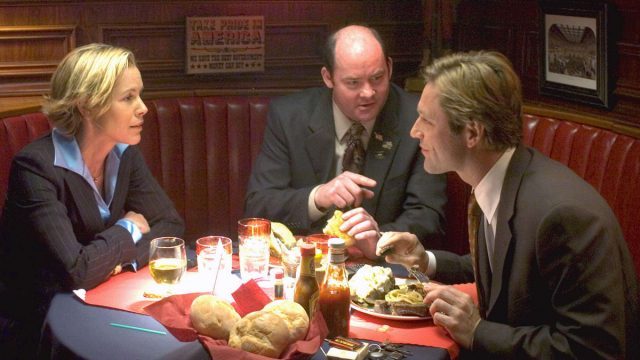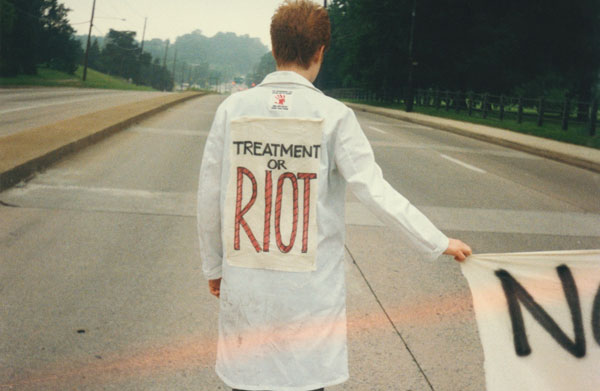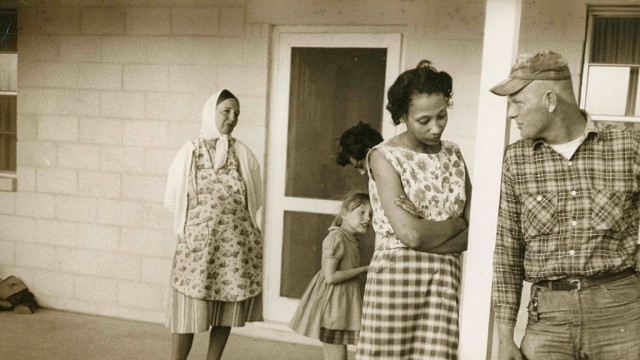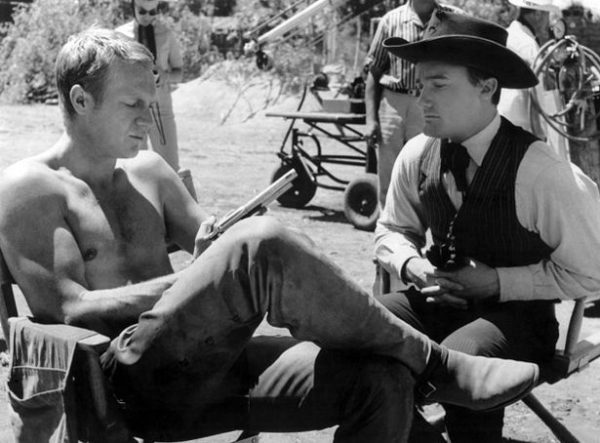
Steve McQueen and Robert Vaughn take a break during filming of THE MAGNIFICENT SEVEN (photo by Jack Harris)
BORDER CROSSINGS: THE MAGNIFICENT SEVEN (John Sturges, 1960)
IFC Center
323 Sixth Ave. at West Third St.
April 21-23, 11:00 am
212-924-7771
www.ifccenter.com
 “He was a very special friend, and I’ll always miss his unique way of looking at life,” Robert Vaughn wrote of Steve McQueen in his 2008 memoir, A Fortunate Life. The longtime pals made three films together, the first being John Sturges’s classic Western, The Magnificent Seven. (They also each got their start in low-budget sci-fi cheese, McQueen in The Blob and Vaughn in Teenage Cave Man.) The film, a remake of Akira Kurosawa’s 1954 epic Seven Samurai, features Vaughn, fresh off an Oscar nomination for Best Supporting Actor in The Young Philadelphians, and McQueen, who was in the middle of his run as Josh Randall in the television series Wanted: Dead of Alive, playing two of seven sharpshooters hired by the men in a poor Mexican farming village where a group of bandits led by the evil Calvera (Eli Wallach) have been running roughshod. McQueen is Vin Tanner, a cool drifter, while Vaughn is traumatized Civil War sharpshooter Lee; the other five are Yul Brynner as leader Chris Adams, Brad Dexter as fortune hunter Harry Luck, James Coburn as knife slinger Britt, Charles Bronson as pro Bernardo O’Reilly, and Horst Buccholz as the fiery young Chico. Brynner and McQueen famously went after each other in a hotly contested battle of acting one-upmanship even as their characters work together to save the town. The magnificent film, which was shot on location in Mexico and established McQueen as a star, also boasts an unforgettably American score by Elmer Bernstein.
“He was a very special friend, and I’ll always miss his unique way of looking at life,” Robert Vaughn wrote of Steve McQueen in his 2008 memoir, A Fortunate Life. The longtime pals made three films together, the first being John Sturges’s classic Western, The Magnificent Seven. (They also each got their start in low-budget sci-fi cheese, McQueen in The Blob and Vaughn in Teenage Cave Man.) The film, a remake of Akira Kurosawa’s 1954 epic Seven Samurai, features Vaughn, fresh off an Oscar nomination for Best Supporting Actor in The Young Philadelphians, and McQueen, who was in the middle of his run as Josh Randall in the television series Wanted: Dead of Alive, playing two of seven sharpshooters hired by the men in a poor Mexican farming village where a group of bandits led by the evil Calvera (Eli Wallach) have been running roughshod. McQueen is Vin Tanner, a cool drifter, while Vaughn is traumatized Civil War sharpshooter Lee; the other five are Yul Brynner as leader Chris Adams, Brad Dexter as fortune hunter Harry Luck, James Coburn as knife slinger Britt, Charles Bronson as pro Bernardo O’Reilly, and Horst Buccholz as the fiery young Chico. Brynner and McQueen famously went after each other in a hotly contested battle of acting one-upmanship even as their characters work together to save the town. The magnificent film, which was shot on location in Mexico and established McQueen as a star, also boasts an unforgettably American score by Elmer Bernstein.
As part of their bonding process, the seven performers also played cards during breaks; one series of publicity photos shows Vaughn sitting next to McQueen as each wins a hand. In addition, in a 2015 interview with the Mirror, Vaughn detailed a visit he and McQueen made to a brothel that didn’t go quite as planned. (“They said, ‘How many girls would you like?’ And Steve said, ‘Seven. We are the Magnificent Seven and we want seven girls.’ Even though not all seven of us were there.”) A 35mm print of The Magnificent Seven is screening April 21-23 at eleven o’clock in the morning in the IFC Center series “Weekend Classics: Border Crossings,” which continues Friday, Saturday, and Sunday mornings through July 2 with such other cool flicks as Sam Peckinpah’s The Wild Bunch, Alejandro González Iñárritu’s Babel, and Tony Richardson’s The Border.
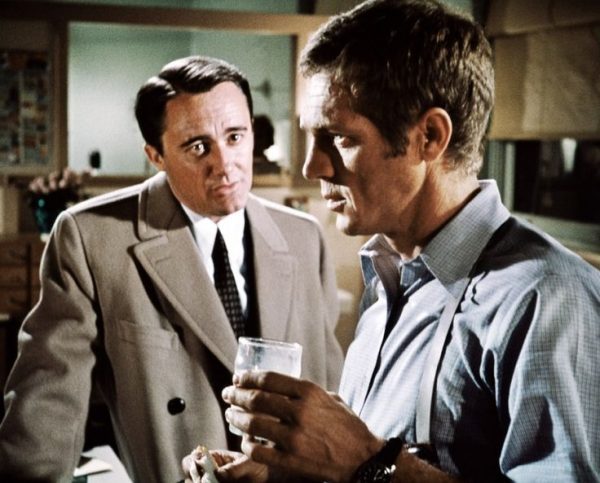
Chalmers (Robert Vaughn) has some sharp words for Bullitt (Steve McQueen) in BULLITT
WAVERLY MIDNIGHTS — ROAD RAGE: BULLITT (Peter Yates, 1968)
IFC Center
323 Sixth Ave. at West Third St.
April 21-22, 12:15 am
212-924-7771
www.ifccenter.com
 New York City native Robert Vaughn, who passed away in November at the age of eighty-three, and good friend Steve McQueen, who was only fifty when he died in 1980, reunited onscreen in 1968 for the police-political thriller Bullitt. By then, each had starred in a television series — McQueen in Wanted: Dead or Alive, Vaughn as Napoleon Solo in the wildly successful, Emmy-nominated spy fave The Man from U.N.C.L.E. In Bullitt, McQueen virtually created the Hollywood antihero, playing a cool, calm cop who does things his way, often leaving a mess behind him; meanwhile, Vaughn began establishing himself as the manipulative high-class villain. In Bullitt, which was based on Robert L. Fish’s 1963 novel, Mute Witness, McQueen stars as San Francisco detective Lt. Frank Bullitt, a character inspired by real-life SF inspector Dave Toschi. Bullitt is personally selected by local politician Walter Chalmers (Vaughn) to protect an important witness, who is scheduled to testify against the Organization in forty hours. But things go awry, leading to murder and mayhem — and one of the all-time-great movie car chases — as Bullitt, distrustful of Chalmers, refuses to follow protocol. Shot on location by cinematographer William A. Fraker on the winding streets of San Francisco, the film, directed by Peter Yates and featuring a jazzy score by Lalo Schifrin, has quite a supporting cast, with Don Gordon and Carl Reindel as two members of Bullitt’s team, Simon Oakland as their boss, Norman Fell as a suspicious captain, Jacqueline Bisset as Bullitt’s designer girlfriend, Georg Stanford Brown as a doctor, Paul Genge and Bill Hickman as the hit men, Vic Tayback as the brother of the informant, and Robert Duvall as taxi driver.
New York City native Robert Vaughn, who passed away in November at the age of eighty-three, and good friend Steve McQueen, who was only fifty when he died in 1980, reunited onscreen in 1968 for the police-political thriller Bullitt. By then, each had starred in a television series — McQueen in Wanted: Dead or Alive, Vaughn as Napoleon Solo in the wildly successful, Emmy-nominated spy fave The Man from U.N.C.L.E. In Bullitt, McQueen virtually created the Hollywood antihero, playing a cool, calm cop who does things his way, often leaving a mess behind him; meanwhile, Vaughn began establishing himself as the manipulative high-class villain. In Bullitt, which was based on Robert L. Fish’s 1963 novel, Mute Witness, McQueen stars as San Francisco detective Lt. Frank Bullitt, a character inspired by real-life SF inspector Dave Toschi. Bullitt is personally selected by local politician Walter Chalmers (Vaughn) to protect an important witness, who is scheduled to testify against the Organization in forty hours. But things go awry, leading to murder and mayhem — and one of the all-time-great movie car chases — as Bullitt, distrustful of Chalmers, refuses to follow protocol. Shot on location by cinematographer William A. Fraker on the winding streets of San Francisco, the film, directed by Peter Yates and featuring a jazzy score by Lalo Schifrin, has quite a supporting cast, with Don Gordon and Carl Reindel as two members of Bullitt’s team, Simon Oakland as their boss, Norman Fell as a suspicious captain, Jacqueline Bisset as Bullitt’s designer girlfriend, Georg Stanford Brown as a doctor, Paul Genge and Bill Hickman as the hit men, Vic Tayback as the brother of the informant, and Robert Duvall as taxi driver.
Oh, and as far as the plot goes, just forget about it; it doesn’t make any sense. In his memoir, Vaughn noted that he only began to understand it as McQueen kept offering more money for him to be in the film. The two friends would go on to make one more movie together, the 1974 disaster epic The Towering Inferno, with McQueen as a fire chief and Vaughn as, well, a sleazy politician. A 35mm print of Bullitt is screening April 21 & 22 at 12:15 am in the IFC Center “Waverly Midnights” series “Road Rage,” which continues through June 24 with such other high-octane thrillers as William Friedkin’s The French Connection, George Miller’s Mad Max, and Peter Collinson’s The Italian Job.

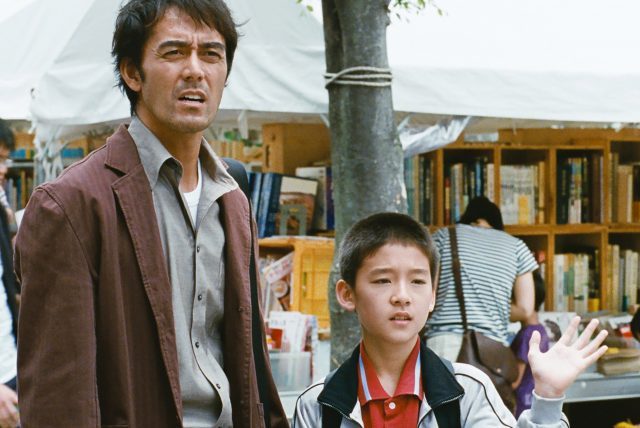
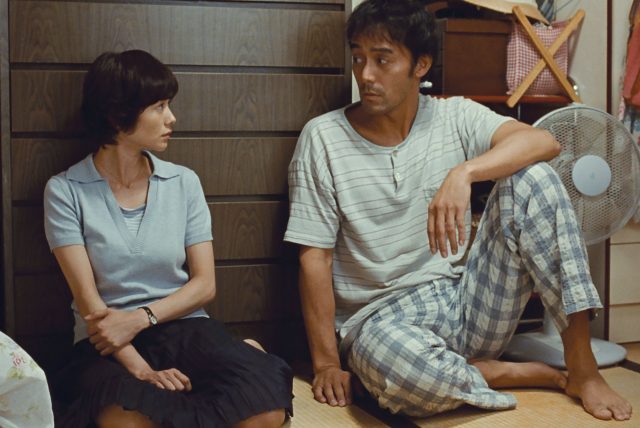
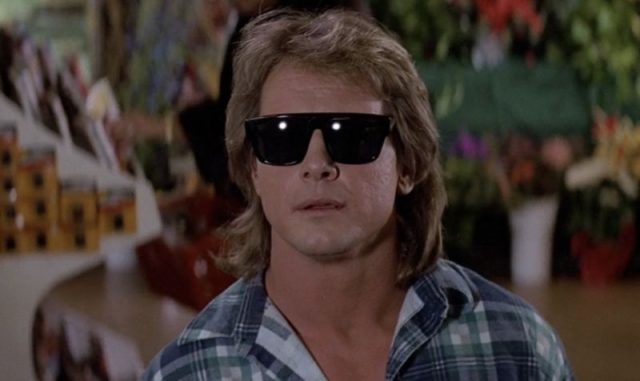
 How can you possibly not love a movie in which wrestling legend Rowdy Roddy Piper, brandishing a shotgun and standing next to an American flag, declares, “I have come here to chew bubblegum and kick ass . . . and I’m all out of bubblegum.” IFC Center’s Trump-inspired “Autocratic for the People: An Unpresidented Series of Star-Spangled Satires” continues March 17-19 with John Carpenter’s tongue-in-cheek Reagan-era cult favorite, They Live. In the goofy 1988 political sci-fi thriller, Piper, who passed away in 2015 at the age of sixty-one, stars as John Nada, a drifter who arrives in L.A. and gets a job working construction, where he is befriended by Frank Armitage (Keith David), who is otherwise trying to keep to himself and away from trouble as he makes money to send back to his family. Frank invites John to stay at a tent city for homeless people, across the street from a church where John soon finds some disturbing things happening involving a blind preacher (Raymond St. Jacques), a well-groomed man named Gilbert (Peter Jason), and a bearded weirdo (John Lawrence) taking over television broadcasts and making dire predictions about the future. John then discovers that by using a pair of special sunglasses, he can see, in black-and-white, what is really going on beneath the surface: Alien life-forms disguised as humans have infiltrated Los Angeles, gaining positions of power and placing subliminal messages in signs and billboards, spreading such words and phrases as Obey, Consume, Submit, Conform, Buy, Stay Asleep, and No Independent Thought. John seeks help from Frank and cable channel employee Holly Thompson (Meg Foster), determined to reveal the hidden conspiracy and save the planet.
How can you possibly not love a movie in which wrestling legend Rowdy Roddy Piper, brandishing a shotgun and standing next to an American flag, declares, “I have come here to chew bubblegum and kick ass . . . and I’m all out of bubblegum.” IFC Center’s Trump-inspired “Autocratic for the People: An Unpresidented Series of Star-Spangled Satires” continues March 17-19 with John Carpenter’s tongue-in-cheek Reagan-era cult favorite, They Live. In the goofy 1988 political sci-fi thriller, Piper, who passed away in 2015 at the age of sixty-one, stars as John Nada, a drifter who arrives in L.A. and gets a job working construction, where he is befriended by Frank Armitage (Keith David), who is otherwise trying to keep to himself and away from trouble as he makes money to send back to his family. Frank invites John to stay at a tent city for homeless people, across the street from a church where John soon finds some disturbing things happening involving a blind preacher (Raymond St. Jacques), a well-groomed man named Gilbert (Peter Jason), and a bearded weirdo (John Lawrence) taking over television broadcasts and making dire predictions about the future. John then discovers that by using a pair of special sunglasses, he can see, in black-and-white, what is really going on beneath the surface: Alien life-forms disguised as humans have infiltrated Los Angeles, gaining positions of power and placing subliminal messages in signs and billboards, spreading such words and phrases as Obey, Consume, Submit, Conform, Buy, Stay Asleep, and No Independent Thought. John seeks help from Frank and cable channel employee Holly Thompson (Meg Foster), determined to reveal the hidden conspiracy and save the planet.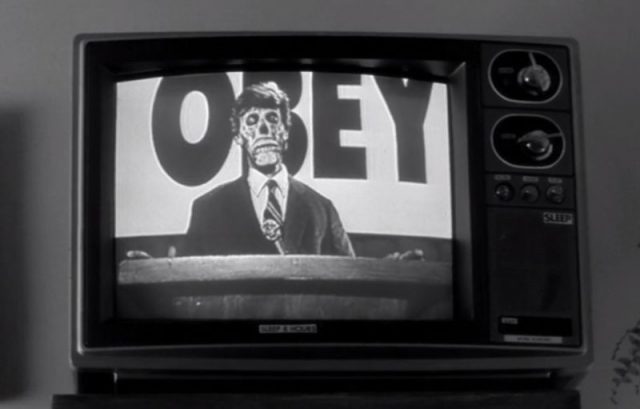
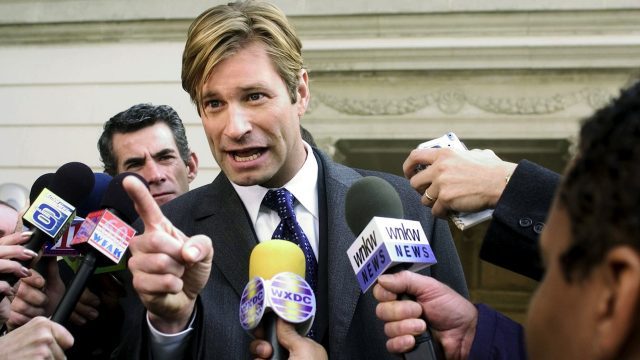
 Jason Reitman, the son of producer-director Ivan Reitman (Stripes, Ghostbusters, Dave), made his sparkling feature-film debut with the brilliant Thank You for Smoking, a devilishly delightful black comedy based on the novel by acerbic wit Christopher Buckley. Aaron Eckhart gives a riotous performance as Nick Naylor, a fast-talking, handsome, smarmy lobbyist for the Academy of Tobacco Studies, a Big Tobacco laboratory that, remarkably, cannot find a link between cigarettes and health risks. A master of spin, Naylor seems to even believe himself when he tells a young boy dying of cancer that he’s better off smoking. As a grandstanding senator (William H. Macy) plans congressional hearings on the evils of tobacco — especially on teenagers — Naylor is being groomed as the industry’s savior by his high-strung boss (J. K. Simmons) and the Captain (Robert Duvall) while trying to establish a meaningful relationship with his son (Cameron Bright). The fine ensemble also features Katie Holmes as a hot young reporter who’ll go to virtually any length to get a story; Sam Elliott as the Marlboro Man, who is dying of lung cancer; Rob Lowe as a Zen-like Hollywood agent who is considering Naylor’s idea of making cigarette smoking cool in the movies again; and Dennis Miller and Joan Lunden as themselves, adding a bit of reality to the hysterical situation, which might not be as far off from the truth as we might think, especially with President Donald Trump recently promising to enact a ban preventing administration members from becoming lobbyists for five years after they leave government service.
Jason Reitman, the son of producer-director Ivan Reitman (Stripes, Ghostbusters, Dave), made his sparkling feature-film debut with the brilliant Thank You for Smoking, a devilishly delightful black comedy based on the novel by acerbic wit Christopher Buckley. Aaron Eckhart gives a riotous performance as Nick Naylor, a fast-talking, handsome, smarmy lobbyist for the Academy of Tobacco Studies, a Big Tobacco laboratory that, remarkably, cannot find a link between cigarettes and health risks. A master of spin, Naylor seems to even believe himself when he tells a young boy dying of cancer that he’s better off smoking. As a grandstanding senator (William H. Macy) plans congressional hearings on the evils of tobacco — especially on teenagers — Naylor is being groomed as the industry’s savior by his high-strung boss (J. K. Simmons) and the Captain (Robert Duvall) while trying to establish a meaningful relationship with his son (Cameron Bright). The fine ensemble also features Katie Holmes as a hot young reporter who’ll go to virtually any length to get a story; Sam Elliott as the Marlboro Man, who is dying of lung cancer; Rob Lowe as a Zen-like Hollywood agent who is considering Naylor’s idea of making cigarette smoking cool in the movies again; and Dennis Miller and Joan Lunden as themselves, adding a bit of reality to the hysterical situation, which might not be as far off from the truth as we might think, especially with President Donald Trump recently promising to enact a ban preventing administration members from becoming lobbyists for five years after they leave government service.